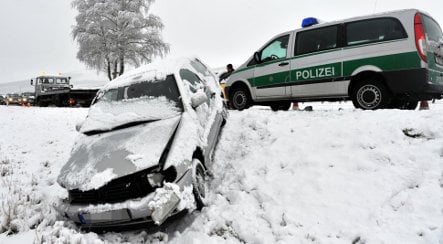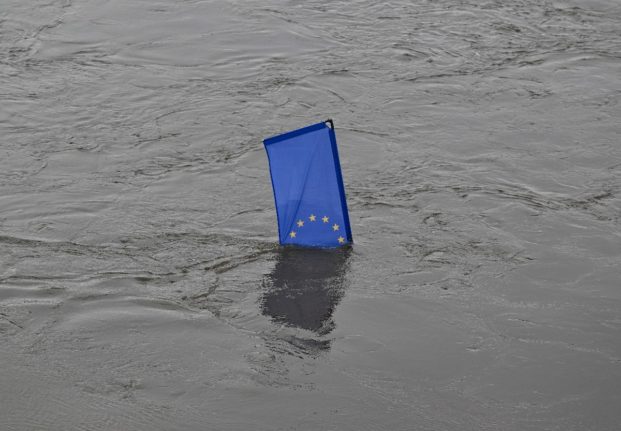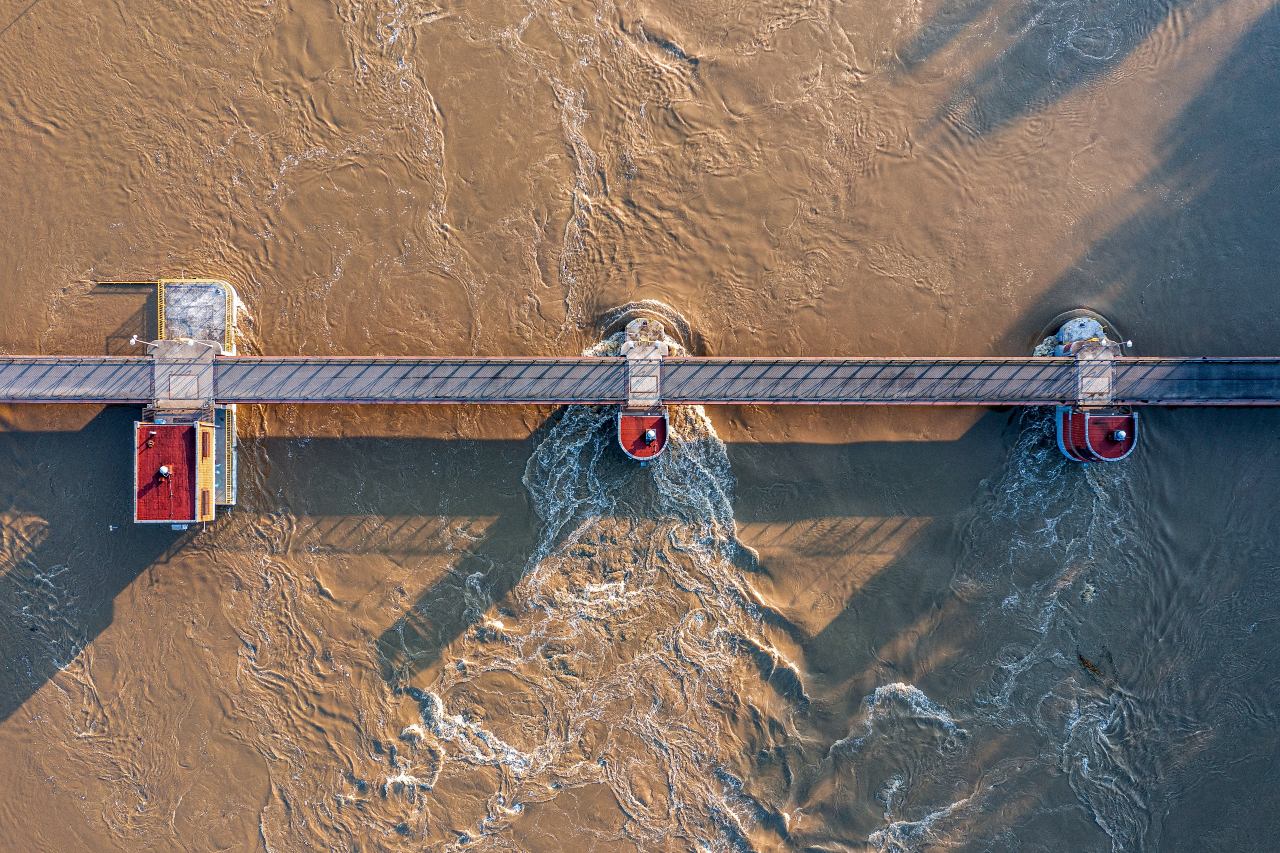Home to Germany’s financial capital Frankfurt, Hesse suffered traffic disruptions throughout the day. One young woman died near Fulda after she lost control of her vehicle on an icy road and drove into oncoming cars. The authorities had to close the A4 motorway after several trucks piled up due to heavy snow and ice caused long delays on the A7.
Emergency road crews couldn’t keep up with the inclement weather at first because a public sector strike over a wage dispute meant snowplough and de-icing teams were undermanned.
Bad weather was also responsible for multiple accidents – with several fatalities – along the A9 and A72 motorways in the states of Bavaria and Thuringia.
A woman and man driving near the near the southwestern city of Freiburg were seriously injured after a large sheet of ice fell from a bridge on top of their car on the A5 motorway. Police said the ice, which crashed through the windscreen, had apparently been shaken loose by a car passing overhead.
Heavy snow on the B27 towards Stuttgart led to a 16-kilometre traffic jam, and vehicles on the A81 motorway between Mundelsheim and the Leonberg junction were backed up over 30 kilometres. Meanwhile only one lane was drivable on the A5 in southern Baden for much of the day.
The northern part of the country also had to contend with winter driving conditions.
Fortunately no one was hurt when a school bus with 25 pupils slid off the road in Weden in the state of North Rhine-Westphalia. But a 27-year-old driver died in Hannover after his car slid on an icy road into a delivery truck.




 Please whitelist us to continue reading.
Please whitelist us to continue reading.